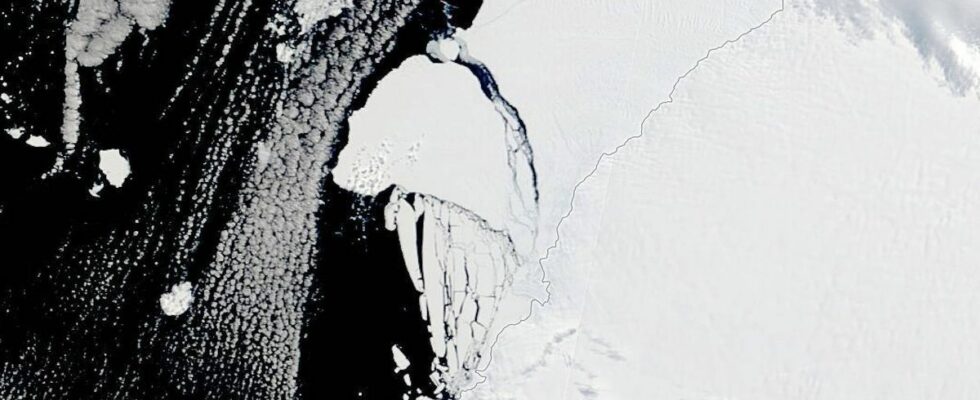This is a disturbing new record recorded in Antarctica. The sea ice is at its lowest level for the month of January, well below the previous record of January 2017, the European Union’s Copernicus (C3S) climate change observatory announced on Wednesday. On the southern continent where it is summer at the moment, the extent of sea ice in January was 31% lower than the average, specifies the European climate observatory.
Sea ice always melts in summer and re-forms in winter, but climate change and other factors affect summer lows and winter highs. In 44 years of satellite observations of the Antarctic sea ice, the minimum record, all months combined, was measured in February 2022, with less than 2 million km2, according to the American research center National Snow and Ice Data Center.
On the other side of the globe, at the North Pole where it is winter, below-average sea ice extent was also observed in the Arctic, where it was 4% below normal, according to Copernicus, i.e. the third weakest measure for a month of January.
Acceleration of global warming
Melting sea ice has no discernible effect on sea level rise because the ice is already in the ocean water. But it is accelerating global warming. The white pack ice, acting like a mirror, reflects most of the sun’s energy. While its melting leaves instead a dark maritime surface, which absorbs heat from solar radiation, thus participating in the acceleration of global warming.
On the European continent, January 2023 was the third hottest January on record, Copernicus also announced. New Year’s Day temperatures, in particular, hit historic highs in the Balkans and across the eastern part of the continent.
The unusual winter temperatures came after Europe’s hottest summer on record brought droughts and deadly fires to the continent, where the world’s climate is warming fastest. “These extreme temperatures continue to be hard evidence of the effects of a changing climate for many regions and can be seen as an additional warning of extreme events to come,” said Samantha Burgess, Deputy Chief of C3S in a communicated.

